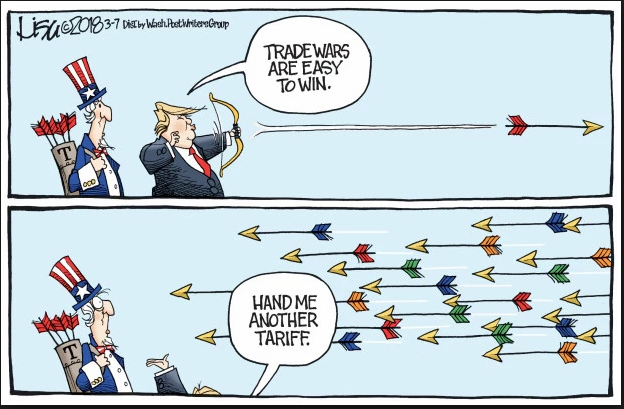Today’s math lesson: 15 percent of nothing is nothing.

China Tightens Checks on Nvidia AI Chips at Major Ports
Please note that since August 2025, Chinese regulators issued directives for major tech companies to shun NVIDIA’s AI chips.
This effectively halted sales of products like the China-specific H20 and RTX Pro 6000D.
On October 10, Reuters reported China Tightens Checks on Nvidia AI Chips at Major Ports
China has intensified enforcement of its import restrictions on U.S. chips, including Nvidia’s (NVDA), opens new tab artificial intelligence processors, the Financial Times reported, as Beijing sharpens its focus on promoting home-grown semiconductor production.
The newspaper said the inspections targeted Nvidia’s H20 and RTX Pro 6000D, designed to adhere to U.S. export controls, initially.
The checks have been extended to include all advanced semiconductor products that breach U.S. export curbs, the report said.
The Financial Times newspaper had previously reported that at least $1 billion worth of Nvidia’s top AI chips were smuggled and sold in China in the three months from May. Reuters could not independently verify the report.
Nvidia has a new AI chip ‘RTX6000D’ tailored for the Chinese market, Reuters reported last month, but it has seen only lukewarm demand with some major tech firms opting not to place orders.
Unconstitutional Levy
The Tax Policy Center comments on The Trouble With Trump’s Deal With Nvidia and AMD: It’s An Export Tax
Two of the nation’s most prominent chipmakers have agreed to pay the US government 15 percent of their revenues from the sale of artificial intelligence chips to China. In effect, the firms will be paying an export tax, though neither they nor the administration describes it this way. One reason why: Such a levy appears to be unconstitutional.
Whatever it is called, this arrangement may prove bad for the economy, for national security, and even for many of the president’s own priorities.
A Constitutional Problem
Like Trump’s recent tariff agreements with Japan and the European Union, few details accompanied this arrangement. How exactly will it be structured? What guardrails will be put in place to limit avoidance and evasion?
Neither the companies nor the Administration is calling this a tax, for at least two possible reasons.
First, raising taxes on US businesses is a bad look for an Administration that wants to be seen as cutting corporate taxes.
Second, and perhaps most important, export taxes are explicitly prohibited by the US Constitution. Article I says, “No Tax or Duty shall be laid on Articles exported from any State.”
Trump and the firms may be trying to avoid that ban by implying the payments are voluntary. But if the firms could not get export licenses without agreeing to the payments, their optionality is questionable.
Trump has made no secret of his desire to greatly expand the government’s ability and his personal authority to manage investment decisions normally made by business. This goes well beyond broad policy initiatives to encourage domestic manufacturing. For example, the Administration reportedly is considering acquiring a stake in another chipmaker, Intel, and Trump says he’ll personally control a share of foreign investment in the US.
The export tax will be difficult to collect. Chip smuggling already is a serious problem. This tax is likely to increase the practice.
And without guardrails, what will prevent US producers from selling to a middleman who can resell to China? For example, firms avoided paying 2018 tariffs on goods from China by first shipping them to Vietnam and then to the US. The same can happen in reverse with export taxes.
The levy will create additional incentives for China to find other markets or, more likely, produce domestic versions of AI chips.
Finally, levies such as this create serious potential for corruption. If the government can pick and choose what products and what producers are subject to an export tax, there is nothing to prevent a firm from using political influence to gain an exception that is unavailable to its competitors.
This export tax, by any name, is a poor idea. It will generate relatively little revenue, fail to protect US security interests, and ultimately make US chipmakers less competitive in world markets.
US Chips, Who Needs Em?
China does not want inferior chips. So Trump’s fifteen percent of nothing is nothing.
All Trump has done is encourage China to smuggle more top-end Nvidia chips and produce its own lower-grade chips.
Trade Wars Are Good and Easy to Win
I interrupt this report with a known fact:
In case you may have forgotten, here is a reminder from 2018: Trump Tweets “Trade Wars are Good and Easy to Win”
Other Lessons Not Learned
February 11, 2025: Trump’s Steel Tariffs Now Will Work as Good as the First Time
Q: How’s that? A: Very poorly.
March 13, 2025: The Amazing “Success” of Trump’s 2018 Aluminum Tariffs in One Picture
I hope you can take a bit of headline sarcasm because the true story follows.
September 6, 2025: Trump’s Aluminum Tariffs Seriously Backfire Already
Tariffs did not and will not bring production back to the US.
US Soybean Exports to China Drop to Zero
September 30, 2025: US Soybean Exports to China Drop to Zero, Argentina and Brazil Win
China shuns US soybeans in trade war retaliation.
Perfect Solution
Not to worry because Trump has the perfect solution: On October 10, I commented Trump Hits China With Additional 100 Percent Tariff, Stocks Sinks, Bonds Soar
I am confused. I thought we did this in April and it worked brilliantly.





